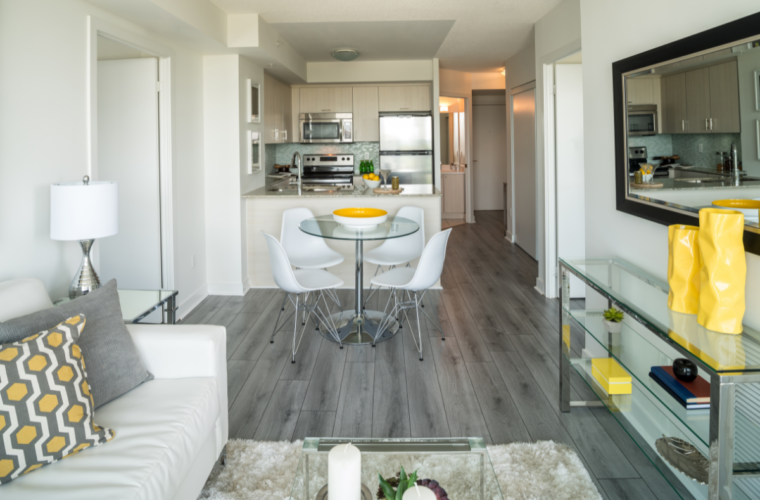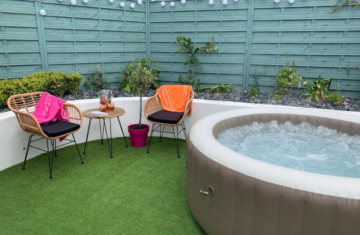Are you feeling frustrated that your holiday cottage isn’t getting as many bookings as in previous years? Annoyed with your letting agency because they’re not making your holiday cottage shine and your property is lost amongst thousands of others?
The best person to market your holiday cottage is… you!
Only you truly know what makes your property special, you have gorgeous photos and videos of the sunsets and you’re passionate about creating an unforgettable experience for your guests.
Directing all of that knowledge and passion into your marketing can generate you some incredible results. And it really doesn’t have to be hard!
Here are 5 things I recommend you do to generate more bookings for your holiday cottage:
Tip One: High-Quality Amenities and Facilities
Arguably, one of the most important parts of marketing your holiday cottage is keeping your guests happy. I’m sorry to say it, but no matter how beautiful your property is, no one books a holiday for the accommodation. They book it for the experience.
In order to create that unforgettable experience for your guests, it’s really important to understand who your ideal guest is.
Now, you might have a few different types of people or groups that stay with you but try to think of the main guest that books.
So grab a pen and paper and list everything you know about your ideal guest.
Here are some pointers to help you out…
- Where are they from?
- Who do they come on holiday with?
- How do they spend their time whilst staying with you?
- Why do they want to come on holiday?
- What’s important to them?
- What do they want to know from you as a local?
- After a long journey, what do they want to do when they arrive at your property?
- What will make them smile whilst staying with you?
By having a clear picture of your ideal guest and understanding what’s important to them on holiday, you can create an incredible experience for them and be crystal- clear in all of your marketing activities.
Your guests will then leave a glowing review on your website or listing, which will in turn bump your property up the search results. Creating a memorable and fun holiday, means your guests are more likely to book direct with you again and again.
Your property will hold a special place in their hearts and they’ll be far more engaged with your social media posts and email marketing.
It’s a win-win!
Tip Two: Direct Booking Website and SEO
Most guests will begin their search for their dream holiday on Google.
So as well as having your property listed on the big OTA’s (online travel agents) sites such as Airbnb and Booking.com, you should have your own website so you can appear when customers search for holiday cottages in your area on Google.
This allows customers to book directly with you and saves you the commissions for the big sites. This does mean making sure your website has great SEO (search engine optimisation) which can be another strategy in itself, but is pretty easy once you know how.
As well as having your website optimised for SEO, it is also important to create a Google My Business page for your property so potential guests can see where your holiday cottage is and click through to book on your website.
By implementing a great SEO strategy and Google My Business page, your visibility will increase online and you will see more direct bookings. It is also a good idea to make sure your listings on other sites are optimised for SEO and is clear about who your ideal guest is.
Top Tip: Remember your ‘ideal guest’ at all times and what’s important to them. Make sure to include this on your website and listings
Tip 3: Professional Photography
There are hundreds of listings on booking sites, so it is important to make sure your property stands out from the crowd.
One of the key ways to do this is investing in some professional photography for you to use on your listings, website and social media platforms.
Good photography not only makes your property stand out amongst the rest but also allows guests to picture themselves on holiday.
Although we all think we can take good photos with our iPhones, nothing compares to a professional and their years of experience.
They will often come with props and spend time setting up your property for the shoot and capturing small details to showcase everything you offer and the quality of your accommodation.
Tip 4: Social Media Presence
Although most people don’t necessarily begin their search for their next holiday on social media, it is a fantastic way to showcase your property and surrounding area, by sharing photos and videos.
Social media is all about reaching a new audience and engaging with holidaymakers, and not something to leave out of your marketing mix.
It’s a fantastic way to drive warm traffic to your website and generate bookings.
It’s also a really great way to find and connect with people that are currently holidaying in your area and get them to book a holiday to the area again, but this time in your accommodation.
My key top tips for using social media for your holiday cottage are:
- Optimise your profile – make it clear about where your property is based, and how many it sleeps. Also think about how to make it stand out to your ideal guest.
- Be consistent – the main way to beat the algorithms on social media is simply to be consistent with your posting. It doesn’t matter too much how many times a week you post. The most important thing is being consistent and not going silent in the busy summer months.
- Plan your content – it is so easy to schedule your social media content now, so plan ahead each month. What events are happening in your area? Are there any national days? You can even batch-create some content, so you can easily have posts going out all of the time.
- Engage – the biggest mistake that I see time and time again is people not being social on social media! Set aside 15-30 minutes a day to reply to comments and messages on your own profile, but also engage with your followers and holidaymakers in the area.
Tip 5: Build an Email List
I also always reply to any reviews I get on the listing sites. It’s just another way for potential guests to see how I communicate and how they can expect me to interact with them.



